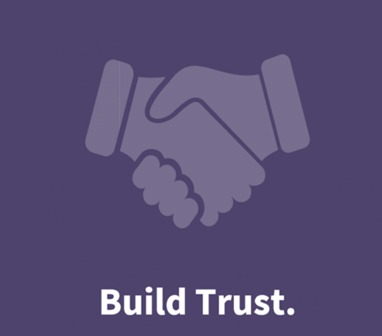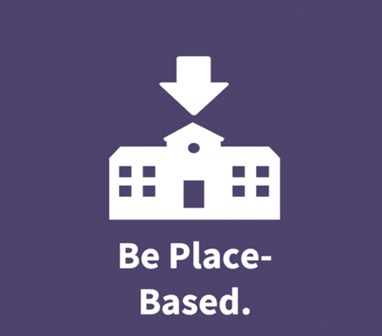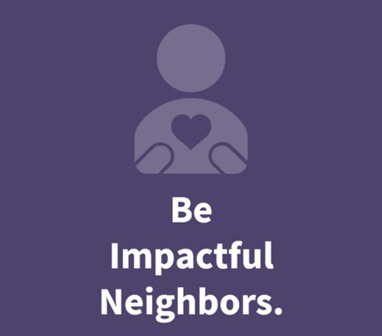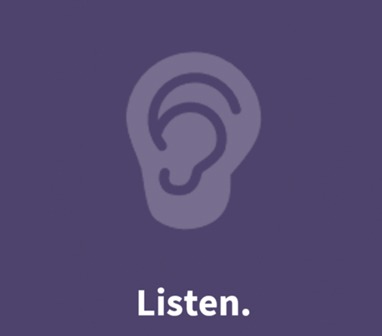Office of the Chancellor
Office of Public Engagement

Campus-Community Compact
To Accelerate Social Justice
“Driven by the fierce urgency of now.”
-Dr. Martin Luther King Jr.
As a land-grant university and anchor institution, it is our mission to enhance the lives of people in Illinois, across the nation, and around the world through our leadership in learning, discovery, engagement, and economic development. In response to Chancellor Jones’ Call-To-Action against racism and social injustice in July 2020, the Community Action and Public Engagement (CAPE) Committee established the Campus-Community Compact, comprised of a diverse group of leaders from both the campus and the community, working collaboratively toward a common goal.
The Compact addresses six critical focus areas that challenge our community: Accessible Technology; Community Relations; Economic Development; Health, Wellness & Resilience; Inclusive Education; and Workforce Development. An established community of nearly 150 scholars and practitioners have developed short-and long-term priorities, objectives, and milestones to accelerate justice at the University of Illinois, Champaign-Urbana, and our surrounding community. This work aligns well with both Illinois' vision of being a pre-eminent publicly-engaged, research intensive, land-grant university with global impact and goal three of the 2018-2023 Strategic Plan: The Next 150 -- Make a Significant and Visible Societal Impact.
Timeline
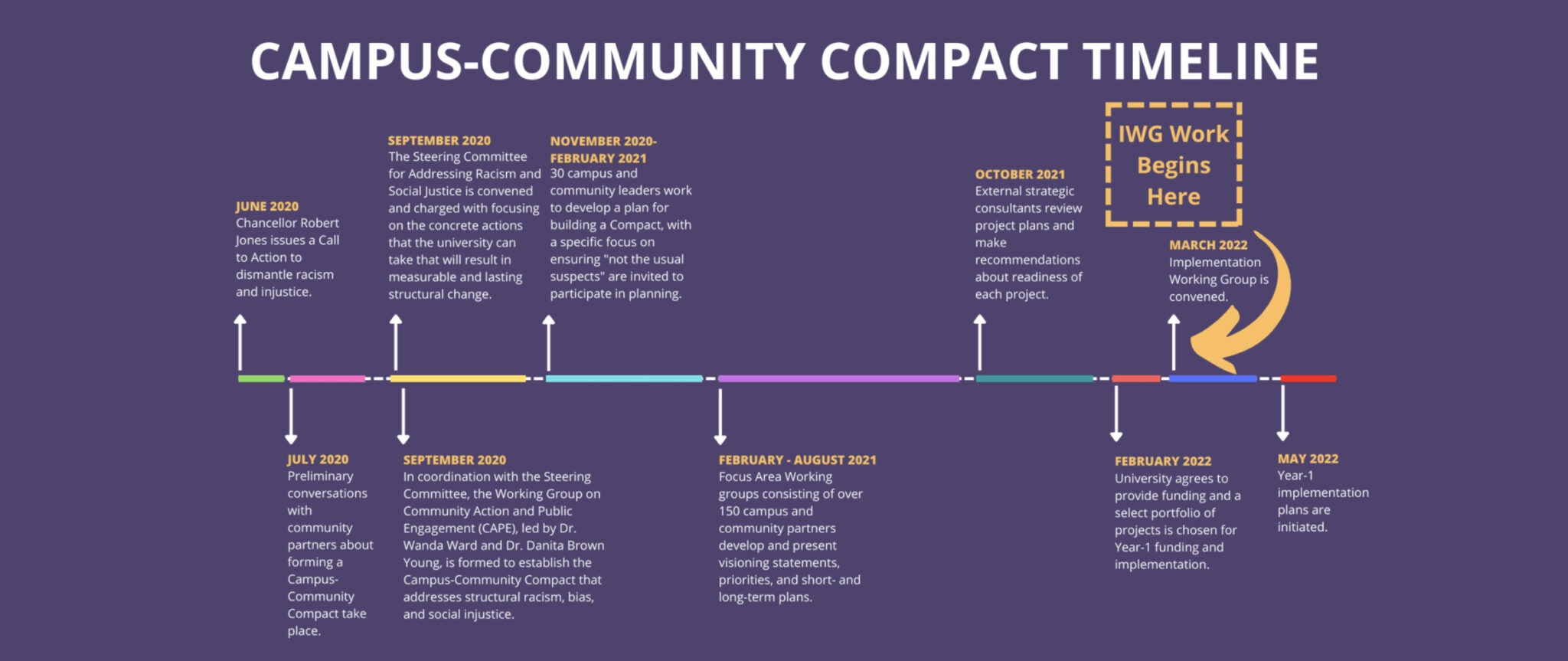
Focus Areas: Visions, Priorities, and Project
In 2020 Under the guidance of the CAPE committee, Focus Area Working Groups, led by pairs of community and campus leaders were formed to develop a vision and key priorities for each of the six focus areas. Short-and Long-term goals for each Focus Area were also developed. In February 2022, $2.5 million of Year-1 funding was awarded, and a portfolio of projects was selected for implementation; with $2.5 million per year for Years-2 and -3 being dependent upon progress made.
To carry out planning and implementation of a selected portfolio of projects for Year-1, The Implementation Working Group (IWG) was convened in March 2022 and charged with developing implementation plans for the selected Year-1 projects, establishing common selection criteria for future short-and long-term projects and signature programs, identifying Year-2 and -3 activities, developing a set of metrics for project and portfolio evaluation, and leveraging the energy and enthusiasm our students have for change to create a better university-community integration. The IWG is made up of 2-3 campus and community leaders for each of the six focus areas. The IWG also has experts in cross-cutting themes, experts in evaluation, and ex officio members from the Office of Public Engagement who serve as project management and administrative support.
Visioning Statement
Establish and fund sufficient community resources to ensure that all residents (regardless of race, ethnicity, neighborhood location, economic status, or other identities) have effective access to and use of internet technologies. Will provide access to computing devices, digital literacy training, and dependable, affordable internet connectivity.
Priority Areas
- Establish and staff an IT hub that will provide both onsite and community-based support and services.
- Serve as an IT resource to help plan and implement IT components of community initiatives.
- Help identify, develop internships, and connect or establish pathway programs to work or college for Black and Indigenous People of Color (BIPOC)youth in our community who show interest in further education.
- Work with all local internet service providers (ISP’s), i3Broadband and the UC2B board to improve service and more fully utilize our existing all-fiber backbone network.
Visioning Statement
Assure physical, mental, and emotional health and wellness for all communities and all community members who face immense threats from structural inequities that disadvantage communities of color and other communities disproportionately affected by exposure to violence, trauma, adverse life experiences, and adverse community environments.
“Of all the forms of inequality, injustice in health care is the most shocking and inhumane”- Dr. Martin Luther King, Jr*
Priority Areas
- Work with mental, behavioral, physical health care and other wellness providers, funders, organizations, and stakeholders to make health equity and addressing violence a strategic priority.
- Develop formal and informal structures that address health equity and structural inequities.
- Work collaboratively with the community, partners, and key stakeholders on targeted campaigns and initiatives to address structural inequities and the social determinants of health.
- Develop strategies and solutions that address racism in our helping and heath care systems, organizations, and provider network.
- Work collaboratively with communities, community organizations and providers that have been historically impacted by racism and structural violence to create equitable structures and sustainable solutions.
*Modified from the Institute of Health Care Improvement – Achieving Health Care Equity
Visioning Statement
Envision a future in which the university and community strive to be mutually interactive –where the university is a welcoming place that shares expertise and resources, and in which the community and university forge a vibrant partnership to combat racism and systemic inequities.
Priority Areas
- Listen to diverse community members in establishing compact priorities and providing resources for sustainability and for clearly communicating results to key stakeholders.
- Create dual and mutually reinforcing strategies for opening up our campus to diverse community members while simultaneously engaging our campus with community initiatives on racial issues.
- Establish critical values to guide all endeavors associated with the compact, such as broad inclusion in framing and implementing initiatives, assuring a focus on those most impacted by racism, consistency of commitment and participation, and high-quality dissemination of information and projects.
Visioning Statement
Priority Areas
- Broadly help small and micro-businesses develop and achieve sustainability.
- Grow business and expand economic activity in neighborhoods.
- Increase minority participation in the workforce through means other than workforce development – both at the micro and macro levels.
- Make economic development information accessible and culturally responsive.
Visioning Statement
Create a community in Champaign-Urbana that welcomes increasingly diverse cohorts of students who represent a wide array of cultures and ethnicities; a community that invests in and offers an accessible and engaging array of learning and individual growth opportunities.
Priority Areas
- Restoring opportunity
- Community based information delivery service
- Professional development
Visioning Statement
Champaign area residents understand what it takes to thrive in the workforce and have a clear understanding of the career pathways available to them at various stages of their careers and the resources they can take advantage of as they navigate these pathways.
Priority Areas
- Job readiness skills
- Educational attainment
- Barriers to employment
- Intentional collaboration
Partnerships
From the initial visioning phases to the current implementation and future-planning work, community and campus collaborators have been working together to address racism in the six grand challenge areas. Compact partners include community leaders from the cities of Champaign and Urbana, Champaign Unit 4 School, Urbana School District 116, and the Champaign and Urbana Park Districts, community members from a wide range of local businesses, faith-based organizations, and non-profits including the United Way of Champaign County, the Community Coalition, Carle Foundation Hospital, OSF Heart of Mary Medical Center, UC2B, and many other equity-focused community organizations.
Committing to the work of the Compact requires the mutual understanding from all collaborators that people engaged with the Compact not only have to own this work, but they must commit to it with collective time, resources, and energy. Commitments from campus and community stakeholders must be made jointly since the responsibility falls upon all involved –no organization (including the university) –can solve this alone. A commitment to the Compact requires many forms of investment, including human, financial, and infrastructure. The collaborative and true co-equal partnership between campus and community formed within the Compact challenges all stakeholders to think creatively and collectively so they can all bring these resources of time, talent, and fiscal assets together in pursuit of addressing social injustice in our community.
Common Values
From the initial visioning phases to the current implementation and future-planning work, community and campus collaborators have been working together to address racism in the six grand challenge areas. Compact partners include community leaders from the cities of Champaign and Urbana, Champaign Unit 4 School, Urbana School District 116, and the Champaign and Urbana Park Districts, community members from a wide range of local businesses, faith-based organizations, and non-profits including the United Way of Champaign County, the Community Coalition, Carle Foundation Hospital, OSF Heart of Mary Medical Center, UC2B, and many other equity-focused community organizations.
Committing to the work of the Compact requires the mutual understanding from all collaborators that people engaged with the Compact not only have to own this work, but they must commit to it with collective time, resources, and energy. Commitments from campus and community stakeholders must be made jointly since the responsibility falls upon all involved –no organization (including the university) –can solve this alone. A commitment to the Compact requires many forms of investment, including human, financial, and infrastructure. The collaborative and true co-equal partnership between campus and community formed within the Compact challenges all stakeholders to think creatively and collectively so they can all bring these resources of time, talent, and fiscal assets together in pursuit of addressing social injustice in our community.
CAMPUS-COMMUNITY COMPACT
Common Goals and Values
